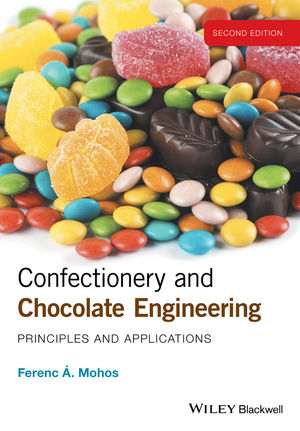As interest in “healthier” snack options ramps up, there’s also a segment of candy consumers ready to try products with a better-for-you angle. Portion control is one expression of this trend (bite-sized and mini offerings), as is the perennial health halo associated with dark chocolate. Others include formulations that are lower-in-sugar, free-from artificial ingredients, “tooth-friendly” or even plant-based (for example, pectin-based gummies).
We recently were able to talk to Jennifer Berndt, associate marketing manager, sugar confectionery, Cargill, about better-for-you candy and how manufacturers can tweak their products to fit the category.
Liz Parker: Why are candy consumers gravitating towards better-for-you-candy?
Jennifer Berndt: One of the big themes across the food and beverage landscape is the idea of “better-for-you” indulgence and its influence extends to sugar confectionery, too. Reduced sugar and no-sugar-added are the big plays, but we’ve also seen brands add functional ingredients and lean into plant-based formulations to appeal to this consumer base.
There’s a simple reason for all the health-focused innovation—consumers are buying it. According to Nielsen confectionery sales data, products with a health claim are growing faster than conventional confectionery. The plant-based trend is catching fire in the sugar-confectionery space, too.
However, while consumers are looking for a healthier path, they still want an indulgent experience. Our Sweet Delight – Decoding Consumer Confectionery Decisions research really crystalized the importance of delivering on both points. Consumers indicated one of their top unmet needs in confectionery is that it tastes good and is healthier.
LP: What kind of health halos are associated with B4U, such as with dark chocolate?
JB: Our latest ChocoLogic survey found 84% of consumers consider chocolate to be healthy. Nearly a quarter (23%) perceive dark chocolate, which is inherently lower in sugar and higher in antioxidants than milk or white chocolate, as the healthier chocolate choice.
There’s also a group of consumers who associate a health halo with plant-based formulations—whether that’s vegan chocolate or a pectin-based gummy.
LP: What kind of B4U formulations can candy manufacturers look for?
JB: Consumers continue to avoid artificial sweeteners. Our proprietary ClaimTracker consumer research finds that for parents, on-pack claims with the highest purchase impact include “naturally sweetened,” “no artificial sweeteners,” and “made with a natural sweetener.”
At the same time, sugar content remains a concern. On-pack claims that revolve around sugar content, including “no added sugar,” “reduced sugar,” and “0 grams added sugar,” have a high purchase impact with parents, too. This is also reflected in the confectionery products on store shelves, with products with a “low sugar” positioning posting a 28% CAGR over the last five years in North America, according to Innova Market Insights.
Plant-based is the other emerging trend in the confectionery space, from vegan chocolate to plant-based gummies. It’s another space to watch for continued growth.
LP: What kind of solutions does Cargill have for B4U candy?
JB: At Cargill, we offer a comprehensive portfolio of ingredient solutions—which means we can help brands with all kinds of formulations, including better-for-you candy.
Sugar reduction is a common ask—after all, it’s the ingredient consumers are most interested in avoiding. For reduced-sugar confectionery, our portfolio includes low- and no-calorie polyols like Zerose erythritol, isomalt, and maltitol, along with a full-range of zero-calorie, stevia-based sweeteners.
For plant-based gummies and chewy candies, our pectin solutions offer a great alternative to animal-sourced gelatin. Derived from apple pomace and citrus peels, label-friendly pectin offers a pleasing “bite,” which our consumer research suggests is preferred by many consumers over gummies made with gelatin. From “full of flavor” to “easy to chew,” our gummy texture research uncovered a host of reasons consumers prefer pectin-based gummies over other options.
Our portfolio includes several dark chocolate options, including Wilbur CC-6990 72% bittersweet chocolate drops, Wilbur V994 NGM semisweet drops, and Peter’s gourmet semisweet drops.
We even have solutions that support “tooth-friendly” treats. Clinical research shows Zerose erythritol is not fermented by oral bacteria, so it won’t promote dental cavities!
LP: Anything else you would like to add?
JB: Our proprietary research finds taste is, by far, the most important aspect of enjoyment. Sweet is the sweet spot! In our often-harried world, we know consumers are looking for moments of happiness and simple pleasures. Sweet confections can be that reward.
However, there’s also white space for products that can combine indulgence with a better-for-you twist. Maybe that’s including a health-positive functional ingredient, or maybe it takes the form of a reduced-sugar option or even a different sweetener choice. Whether it’s low-sugar licorice or plant-based gummies, we’re working overtime to help candy makers deliver confections that meet health-conscious consumers’ expectations and taste great, too.
Related: Cargill on sustainability, its Cargill Cocoa Promise, and new ingredients










